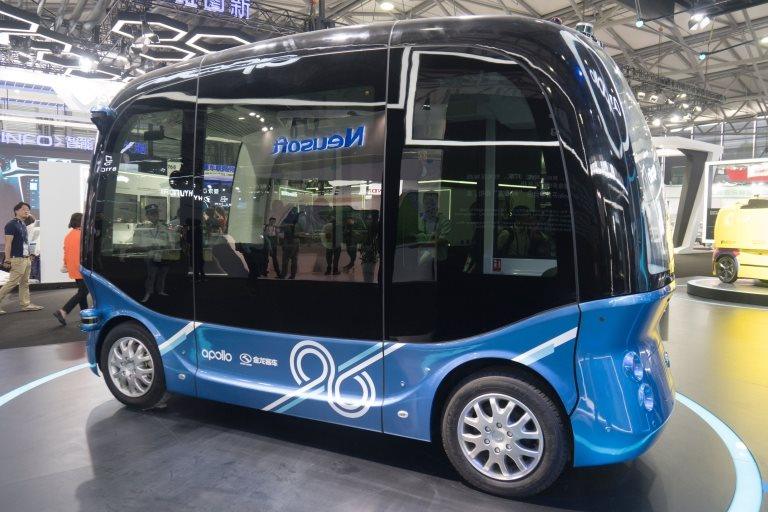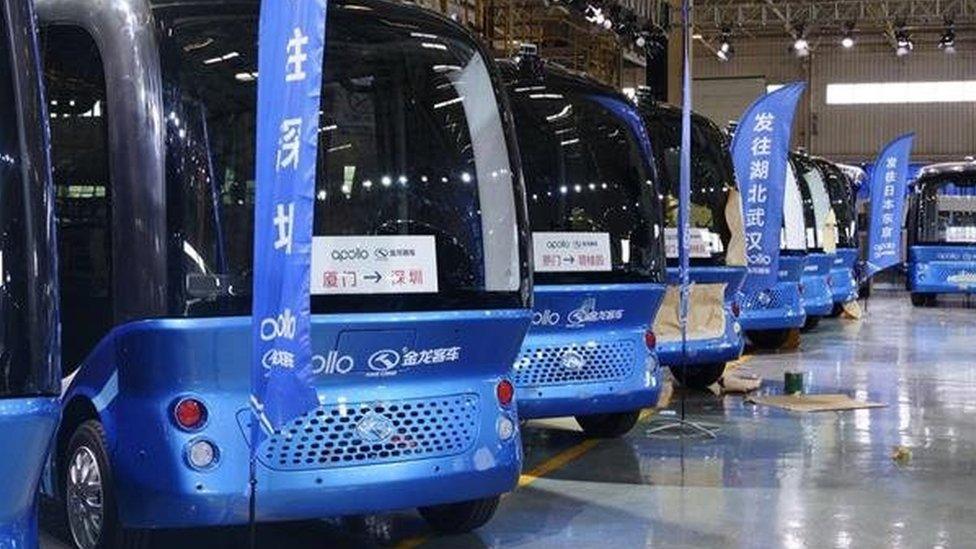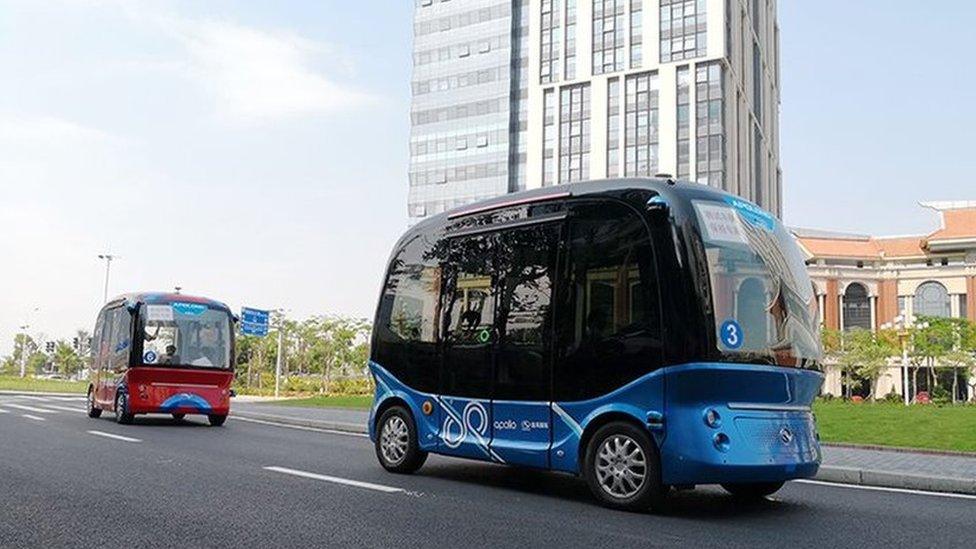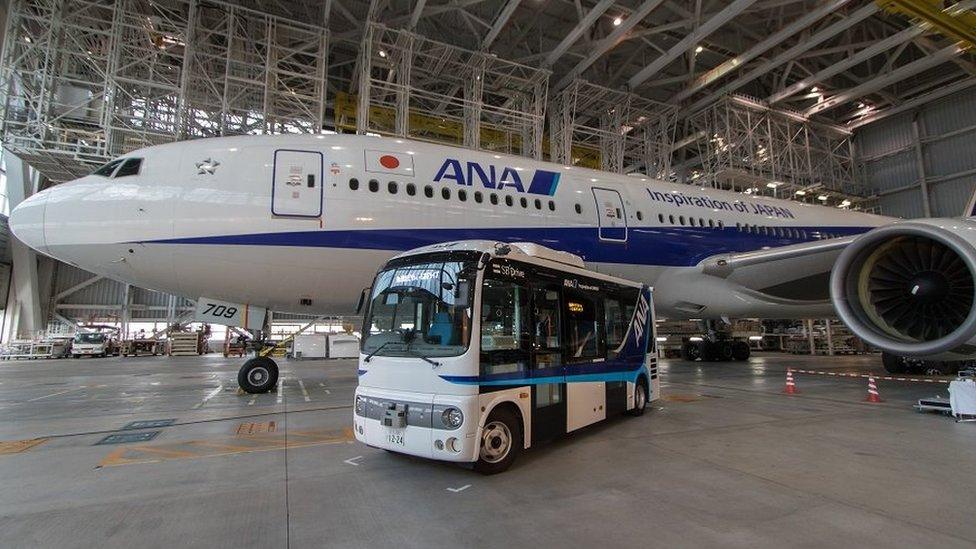Baidu's self-drive buses enter 'mass production'
- Published

The Apolong buses are not fitted with a steering wheel
One of China's biggest technology companies has declared it has begun mass production of a self-driving bus.
Baidu made the announcement, external after building its 100th Apolong vehicle at its factory in the country's south-eastern Fujian province.
It said the vehicles would initially be put to commercial use within Chinese cities but added it was also targeting foreign markets.
The company is one of several competing to sell "level-4 autonomy" buses.
The classification - set by the transport engineering body SAE International, external - refers to highly automated driving systems that can cope with most driving conditions, even if a human fails to respond appropriately to a request to intervene.
It is one step below the maximum level-5 tier, which extends to all driving scenarios, including dirt roads and unusual weather conditions.
Baidu's chief executive, Robin Li, detailed its plans at the company's annual artificial intelligence developer conference in Beijing.

The Apolong is about a third of the size of a normal bus
He said: "2018 marks the first year of commercialisation for autonomous driving.
"In the past, China exported cheap commodities to the world. In the future, China will export AI technology to the world."
Softbank deal
The Apolong bus can seat up to 14 people, and has been developed with a local vehicle manufacturer.
It has no driver's seat, steering wheel or pedals.
It runs on electric power and can travel up to 100km (62 miles) after a two-hour charge, at up to 70km/h.
Baidu envisages it being used for "last-mile" drop-offs within enclosed areas, such as airports and tourist sites.
The company said partners would soon put it to use in Beijing, Shenzhen, Wuhan and other Chinese cities.

Softbank says it intends to run the Apolong buses on Tokyo's public roads
It added that a deal with Japan's Softbank Group could also bring the vehicle to Tokyo's roads.
In a separate Japanese-language press release, Softbank said, external it intended to start using 10 Apolongs for "demonstration tests" within Japan by early 2019.
Softbank's self-drive subsidiary, SB Drive, had previously bought several self-drive shuttle buses from a rival operation - the French start-up Navya.
It demonstrated their use in level-3 mode - where a human is expected to take control if required - at Tokyo's Haneda Airport in February.

Softbank tested a bus it had bought from Navya at an airport earlier this year
Navya's self-drive buses have also been put to use by others at Paris's Charles de Gaulle airport, London's Queen Elizabeth Olympic Park, and the streets of Las Vegas.
Other companies, including France's Easymile, Australia's Intellibus and South Korea's KT, have developed autonomous buses of their own.
One academic suggested that in the near-term, such vehicles had a greater chance of public acceptance than self-drive cars.
"Any vehicle that can be deployed in a well-organised and controlled environment and that can be controlled and regulated by authorities... is more likely to be the starter for this sort of technology, than ones which will be provided to [a single] member of the general public, who would not necessarily be closely monitored," said Prof Natasha Merat, from the University of Leeds' Institute for Transport Studies.
- Published8 November 2017